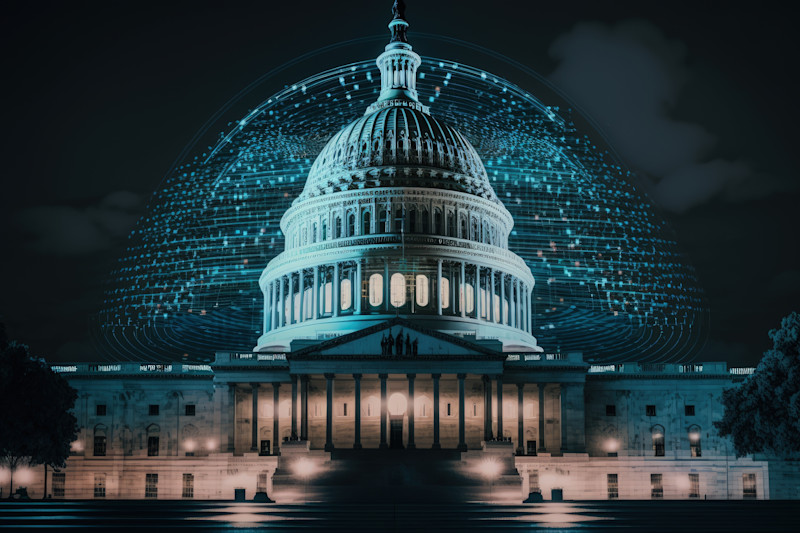Yesterday’s testimony by OpenAI CEO Sam Altman before the Senate Judiciary Subcommittee on Privacy, Technology, and the Law garnered much attention from policymakers and the media. But it was only one of a slew of activities related to artificial intelligence (AI) happening in Washington this month.
The judiciary hearing focused on government oversight and regulation of AI. Altman testified that AI has the potential to solve “humanity’s biggest challenges” but that government regulation is “crucial” to its future. The other witnesses agreed.
The Senate Homeland Security Committee also held the second of a series of hearings on AI yesterday. Witnesses testified about the potential of AI to help government better serve the American people, such as by improving how agencies deliver services and what pitfalls to be aware of as government increasingly adopts AI tools.
There have also been several AI-related announcements from the administration, including calls for public comment on the use of automated systems in the workplace, a meeting of senior administration officials and top tech CEOs (including Altman), and an AI initiative to promote responsible development while protecting Americans’ rights and safety.
The EU is also working to regulate AI. Last week, lawmakers from two committees of the European Parliament overwhelmingly approved the Artificial Intelligence Act. The goals are to foster innovation and protect the public. According to the World Economic Forum, the proposed legislation focuses primarily on strengthening rules around data quality, transparency, human oversight, and accountability. It also aims to address ethical questions and implementation challenges in various sectors, ranging from healthcare and education to finance and energy. The full parliament will vote in June, followed by negotiations between the parliament, EU member countries, and the European Commission.
Finally, last week, the Center for Strategic and International Studies (CSIS) launched the Wadhwani Center for AI and Advanced Technologies, named for and supported by Dr. Romesh Wadhwani, a leading Silicon Valley entrepreneur and philanthropist with more than 50 years of experience and success in founding and leading software and AI technology companies. An A-list group of industry executives, thought leaders, and government officials joined the tech entrepreneur. Here too, speakers emphasized the rapid pace of advancements and the need for government action to protect against the spread of misinformation and copyright infringement.
In Wadhwani’s words: “Rapid progress in AI and other advanced technologies hold the potential to transform nearly all aspects of human life, including geopolitical structures, military strategy, economic development, jobs, domestic politics, scientific research and regulatory frameworks worldwide,” but “While these changes offer opportunities for a safer, healthier, and more sustainable world, they also pose considerable national security challenges that require effective management, governance, and diplomacy.”





